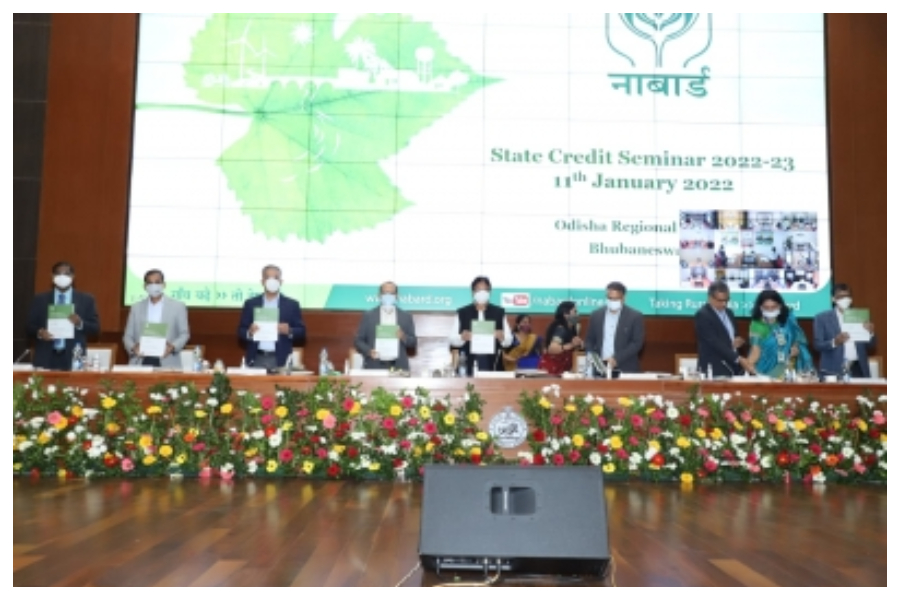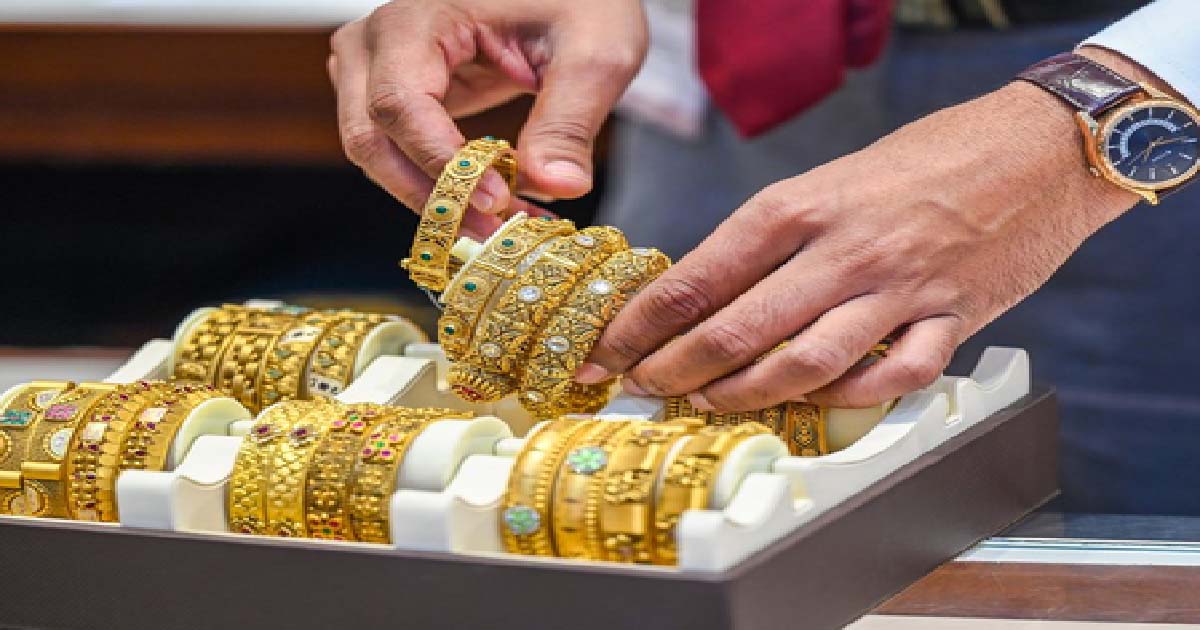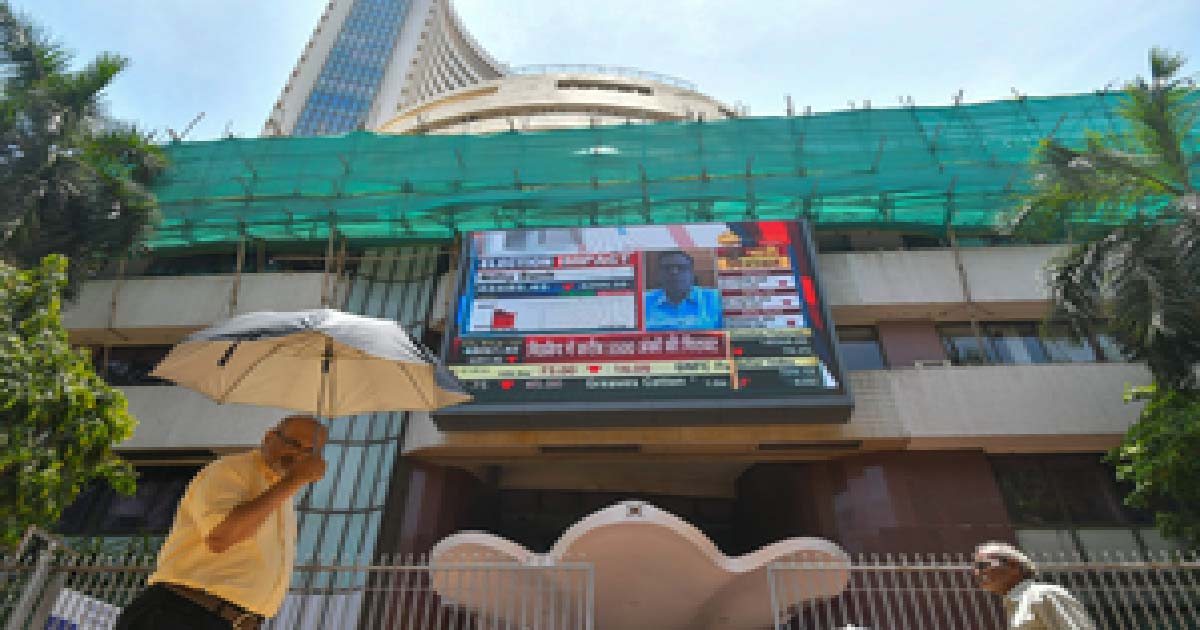Business
NABARD pegs Odisha’s credit potential for 2022-23 at Rs 1.34 lakh cr

The National Bank for Agriculture and Rural Development (NABARD) has projected Odisha’s credit potential for the financial year 2022-23 at Rs 1,34,665 crore, officials said here on Tuesday.
The credit project for the year 2022-23 is 21.61 per cent higher than the previous year’s Rs 1,10,735 crore. This was known from the NABARD’s State Focus Paper for Odisha for the year 2022-23 released here on Tuesday.
Out of the total credit potential for the priority sector, the highest amount of Rs 52,050.78 crore (38.65%) has been assessed under the agriculture sector.
Under the agriculture sector, credit flow of Rs 48,221.10 crore (92.64%) is estimated under farm credit, which comprises both crop loans and term loans for agriculture and allied activities. Besides, credit potential under agriculture infrastructure and ancillary activities has been estimated at Rs 1,824.33 crore and Rs 2,005.34 crore, respectively.
Credit potential under MSME sector has been assessed at Rs 60,001.27 crore, constituting around 44.56 per cent of the total priority sector. Other sectors consisting of export credit, education, housing, renewable energy, others and social infrastructure have around 16.79 per cent share in the total credit potential under priority sector.
Releasing the paper, Odisha finance minister Niranjan Pujari emphasised upon the need for increasing the bank credit for priority sector in Odisha as government has been pushing lot of support through various schemes like Balaram, Kalia, Samrudhi, Millet Mission, FPOs etc and it’s time for banks to increase the credit flow for private capital formation substantially.
Activities such as animal husbandry, poultry, fisheries etc., leading to asset formation and diversification of the income basket of farmers need to be credit linked, Pujari said.
Principal Secretary Finance, Vishal Kumar Dev said that the State economy could withstand the negative impact of Covid and proved its resilience. Dev indicated that a five year long term planning exercise has been commenced for a structured development of the state.
He called upon the bankers for removal of rural and urban disparity among the districts in terms of extending financial services and paving way for sustained development. Dev asked all banks to achieve the set targets and increase the bar.
Chief General Manager of NABARD, C. Udayabhaskar said that concerted efforts need to be made for achieving the set targets for the current year and increase the credit flow to the priority sector.
The NABARD has been increasing their support for the infrastructure development, tribal development, watershed development and micro entrepreneur development among SHG women and will increase the developmental activities in the State, he said.
Business
Gold, silver tumble as hopes of December Fed Rate cut fade

Mumbai, Nov 18: Gold and silver prices dropped sharply in the domestic futures market on Tuesday morning as hopes of a US Federal Reserve rate cut in December faded and concerns over US tariffs eased.
This reduced the appeal of safe-haven assets like bullion. At early trade, MCX Gold December futures were trading 1.19 per cent lower at Rs 1,21,466 per 10 grams.
MCX Silver December contracts also declined 1.65 per cent to Rs 1,52,750 per kg.
“Gold has support at $4000-3965 while resistance at $4075-4110. Silver has support at $49.70-49.45 while resistance is at $50.75-51.10,” market watchers said.
“In INR gold has support at Rs1,22,350-1,21,780 while resistance at Rs1,23,750-1,24,500. Silver has support at Rs1,53,850-1,52,100 while resistance at Rs1,56,540, 1,57,280,” they added.
Internationally, gold prices slipped for the fourth straight session on Tuesday.
A stronger US dollar and weakening expectations of a rate cut next month continued to weigh on the metal.
The dollar index rose to 99.59, making gold more expensive for buyers using other currencies.
Gold, which is priced in US dollars, becomes costlier when the greenback strengthens, resulting in reduced demand.
The recent US government shutdown, which lasted a record 43 days, had delayed the release of important economic data, creating uncertainty about the condition of the world’s largest economy.
With the shutdown now over, attention has shifted to key data releases expected this week, including the September nonfarm payrolls report on Thursday.
These numbers will play a major role in shaping expectations around the US Federal Reserve’s next move on interest rates.
Meanwhile, Fed officials continue to send mixed signals on the future path of monetary policy, adding further uncertainty to the market.
With no major positive fundamental triggers in recent days, bulls remain hesitant—especially with both metals still trading at historically high levels.
“Traders now await a fresh round of US economic data later this week. Meanwhile, a firmer US Dollar Index and slightly higher 10-year Treasury yields added pressure to precious metals,” analysts said.
Business
Sensex, Nifty open lower on weak global cues

Mumbai, Nov 18: Indian stock markets opened lower on Tuesday as weak global cues weighed on investor sentiment. Both benchmark indices slipped 0.2 per cent at the opening bell.
The Sensex dropped 195 points to trade at 84,756 in early deals, while the Nifty fell 64 points to 25,949. Most heavyweight stocks were under pressure, dragging the indices down.
“Immediate resistance now lies at 26,100, followed by 26,150, while the 25,850–25,900 band is likely to offer meaningful support and serve as an accumulation zone for positional traders,” market experts said.
“These levels will remain crucial as the index navigates early weakness,” experts noted.
Tata Steel, Bajaj Finance, Bajaj Finserv, Kotak Mahindra Bank, Larsen & Toubro, Mahindra & Mahindra, Tech Mahindra, HCL Tech, Sun Pharma and Titan were among the major laggards, declining between 0.5 per cent and 1 per cent.
However, a few stocks managed to stay in positive territory. Bharat Electronics, Bharti Airtel, Axis Bank, Eternal and State Bank of India were the only gainers on the Sensex, rising up to 0.5 per cent.
Broader markets also opened weak, with the Nifty MidCap index slipping 0.25 per cent and the Nifty SmallCap index falling 0.40 per cent.
Among sectoral indices, Nifty PSU Bank was the only one to trade higher, gaining 0.25 per cent. On the other hand, Nifty Realty and Nifty Metal dropped 0.8 per cent each, while the Nifty IT index fell 0.5 per cent.
The Bank Nifty mirrored the broader market’s resilience, reflecting renewed buying momentum.
“Strong support is identified at 58,600, and a breakdown below this mark may trigger a modest decline toward 58,800,” market watchers mentioned.
“On the upside, resistance at 59,100 remains a key barrier, and a sustained breakout above this level may open the path toward 59,300, indicating potential continuation of the bullish trend,” experts stated.
Business
Indian PSU oil companies secure ‘historic’ deal to import 2.2 MTPA LPG from US: Puri

New Delhi, Nov 17: In a key development, Indian public sector oil companies have finalised a deal for imports of around 2.2 million tonnes per annum (MTPA) LPG for the contract year 2026, to be sourced from the US Gulf Coast, Petroleum and Natural Gas Minister Hardeep Singh Puri said on Monday.
In a post on X social media platform, he said that in a historic first, “one of the largest and the world’s fastest growing LPG market opens up to the United States”.
“In our endeavour to provide secure affordable supplies of LPG to the people of India, we have been diversifying our LPG sourcing,” the minister said.
“In a significant development, Indian PSU oil companies have successfully concluded a 1-year-deal for imports of around 2.2 MTPA LPG, close to 10 per cent of our annual imports – for the contract year 2026, to be sourced from the US Gulf Coast – the first structured contract of US LPG for the Indian market,” Puri informed.
This purchase is based on using Mount Belvieu as the benchmark for LPG purchases and “a team of our officials from Indian Oil, BPCL and HPCl had visited the US and engaged in discussions with major US producers over the last few months, which have been concluded now”.
Under the leadership of PM Modi, PSU oil companies have been providing LPG at the lowest global prices to all our mothers and sisters.
“Even as global prices soared by over 60 per cent last year, PM Modi ensured that our Ujjwala consumers continued to receive LPG cylinder at just Rs 500-550 whereas the actual cost of the cylinder was over Rs 1,100,” said the minister,
The Government of India incurred the cost of over Rs 40,000 crore last year “in order to ensure our mothers and sisters did not feel the burden of rising international LPG prices”, he mentioned.
-

 Crime3 years ago
Crime3 years agoClass 10 student jumps to death in Jaipur
-

 Maharashtra1 year ago
Maharashtra1 year agoMumbai Local Train Update: Central Railway’s New Timetable Comes Into Effect; Check Full List Of Revised Timings & Stations
-

 Maharashtra1 year ago
Maharashtra1 year agoMumbai To Go Toll-Free Tonight! Maharashtra Govt Announces Complete Toll Waiver For Light Motor Vehicles At All 5 Entry Points Of City
-

 Maharashtra1 year ago
Maharashtra1 year agoFalse photo of Imtiaz Jaleel’s rally, exposing the fooling conspiracy
-

 National News1 year ago
National News1 year agoMinistry of Railways rolls out Special Drive 4.0 with focus on digitisation, cleanliness, inclusiveness and grievance redressal
-

 Maharashtra1 year ago
Maharashtra1 year agoMaharashtra Elections 2024: Mumbai Metro & BEST Services Extended Till Midnight On Voting Day
-

 National News1 year ago
National News1 year agoJ&K: 4 Jawans Killed, 28 Injured After Bus Carrying BSF Personnel For Poll Duty Falls Into Gorge In Budgam; Terrifying Visuals Surface
-

 Crime1 year ago
Crime1 year agoBaba Siddique Murder: Mumbai Police Unable To Get Lawrence Bishnoi Custody Due To Home Ministry Order, Says Report












